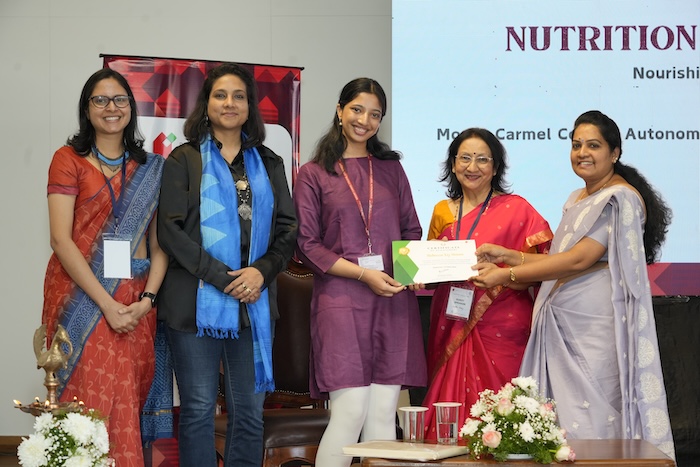
Nourishing Schools Foundation announces the winners of the Fit and Fun Ideas Challenge
Over 650 students from numerous schools and colleges across India participated in the Nourishing Schools Foundation’s “Fit and Fun Ideas Challenge” – submitting their ideas for the organisation’s Nourishing Schools Toolkit. The challenge, which recently announced its winners in March 2024, was a part of the Nourishing Schools Foundation’s initiative…
Read More
The Crucial Role of Micronutrients in Nourishing Our Bodies
In the intricate realm of nutrition, there exists a class of vital substances that often go unnoticed—micronutrients. These tiny powerhouses encompass a variety of vital vitamins and minerals, such as vitamin A, B vitamins, vitamin C, vitamin D, vitamin E, iron, zinc, iodine, selenium, and calcium. Despite being required in…
Read More
Overcoming Challenges: Integrating Outdoor Learning into School Curricula
Integrating outdoor learning into school curricula presents formidable challenges, but the potential benefits are substantial. Extensive research has demonstrated its positive influence on academic achievement, social-emotional development, and environmental consciousness. However, educators must strategize to overcome the barriers that impede this transformative approach. One of the primary hurdles is time…
Read More
Embracing Nature: The Benefits of Outdoor Learning for Children
In the realm of education, a captivating revolution has taken hold—the integration of outdoor learning. Beyond the confines of traditional classrooms, children venture into nature’s classroom, where the benefits are boundless and engagement soars. Embrace the great outdoors, where physical health flourishes. Through nature walks, gardening, and outdoor science experiments,…
Read More
Schools as Catalysts: Promoting Healthy Eating and Active Lifestyles among Students
Schools play a critical role in promoting healthy eating and active lifestyles among students. With childhood obesity rates on the rise, it is more important than ever for schools to prioritise health and wellness as part of their curriculum and environment. By addressing disparities in access to healthy foods and…
Read More
Empowering Communities: Collaborative Approaches to Addressing Disparities
Access to healthy foods and physical activity is essential for promoting good health and preventing chronic diseases. However, many communities, particularly those with low-income populations, face significant disparities in access to these resources. To address these disparities and promote health equity, community engagement and collaboration are essential. Community-based approaches can…
Read More
Creating Equitable Food Systems: Promoting Food Security and Health Equity
Promoting equitable and sustainable food systems is paramount in addressing food access disparities and fostering food security and health equity. These systems prioritise providing fresh, affordable, and nutritious food to individuals, regardless of their socioeconomic status or location. Establishing such systems can enhance health outcomes and mitigate health inequalities. The…
Read More
Food Deserts: Understanding and Overcoming Barriers to Healthy Eating
Food deserts refer to areas with limited availability of fresh, affordable, and nutritious food. Food deserts can exist in urban and rural communities. These areas often lack grocery stores or supermarkets offering healthy food options. Inadequate access to fresh and nutritious food in food deserts contributes to adverse health outcomes,…
Read More
Nutrition Education for Sustainability: Teaching Students about Food Systems and Environmental Impact
Nutrition education is essential for forging a sustainable future. By imparting knowledge about food systems, food waste, and the environmental repercussions of dietary choices, we empower students to make informed decisions that drive sustainability forward. The Nourishing Schools toolkit serves as an invaluable resource, offering a plethora of ideas to…
Read More
Fermentation and Its Significance
Fermentation is a traditional process that has been widely used in Indian cuisine for centuries. The process of fermentation involves the use of microorganisms like bacteria and yeast to break down sugars and other compounds present in foods and beverages. This process is widely used in the production of many…
Read More